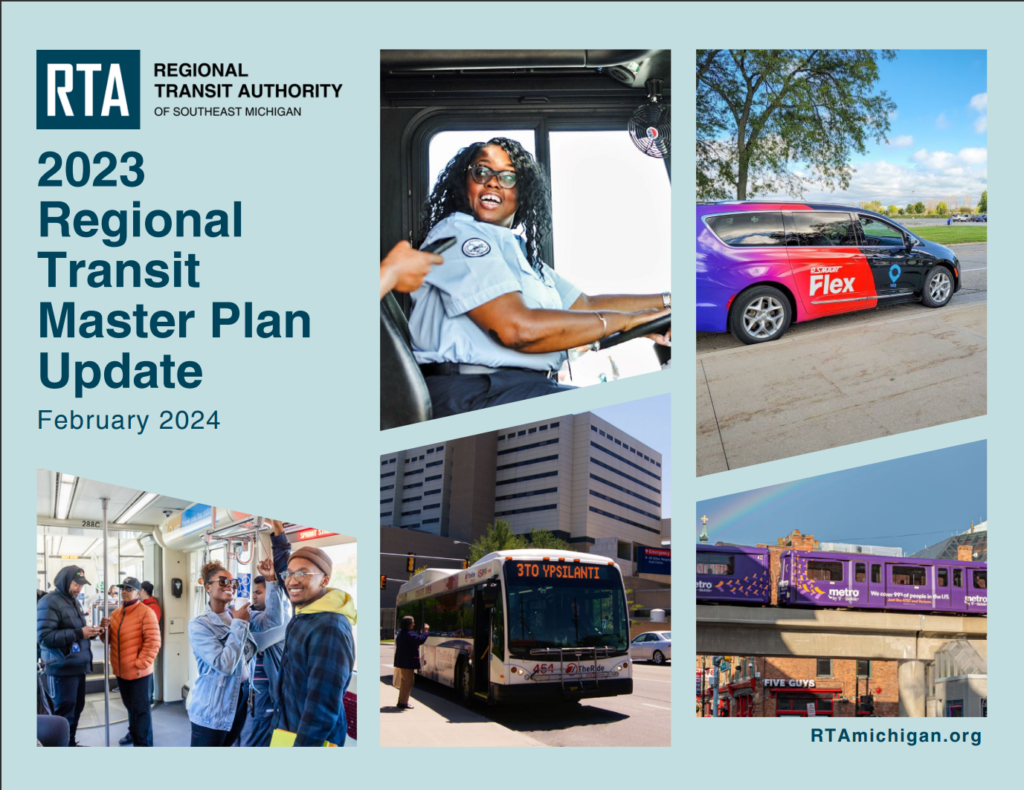RTA envisions a region with sufficient and stable funding to support improved public transit options that will advance equity by increasing accessibility; satisfy the integrated mobility needs of Southeast Michigan communities; and promote livable, healthy, and sustainable growth. In order to develop a strategic agenda, and to coordinate ongoing and future planning activities, RTA releases yearly updates to the Regional Transit Master Plan (RTMP).
You can click here or below to read the finalized 2023 RTMP update. The plan’s executive summary is an overview that offers key points of the full plan, which goes into further detail.
Other recent RTMP versions can be found below:
2021 Master Plan Executive Summary
RMTP History
The original RMTP was approved in August 2016. The 2016 RMTP was a fiscally constrained 20-year master plan with a total recommended investment of $4.6 billion. That plan led to 1.2 mil property tax levy request on the November 2016 ballot. That initiative was narrowly defeated.
2016 Regional Transit Master Plan
The RMTP was paired with the development of five major regional corridor investments projects. These culminated in adopted Locally Preferred Alternatives for all five corridors.
Woodward Avenue Locally Preferred Alternative (adopted in November 2015)
Gratiot Avenue Locally Preferred Alternative (adopted in May 2016)
The last several years have included robust discussions on how to best update the 2016 RMTP. This included the developed the draft Connect Southeast Michigan strategy. This effort represented several important advancements in our regional transit discussion. These included more services in more places, investment programs to support local services in less urbanized areas, and programs to support the integration of new technologies to modernize the transit system.
- Nine virtual open houses
- Over a dozen targeted listening sessions
- Online survey
- General public survey
- Transit rider survey
ADVANCE 2021 became RTA’s RTMP and will help to guide strategic planning activities in Southeast Michigan over the next 20 years.
RTA recently completed a strategic analysis of major regional transit corridors and their competitiveness for FTA’s Capital Investment Grant program. The Regional Transit Corridor Strategy report lays out that analysis and a strategy for moving forward with implementing these corridors in partnership with the transit providers and MDOT.




